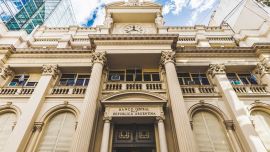Healthcare professionals in Argentina have appealed to the government and members of the public to recommit to the fight against Covid-19, with doctors warning that the country’s intensive care units are on the brink of saturation.
An open letter from medical professionals published this week warned of devastating consequences should infections continue to surge. It said that intensive care staff were thin the ground and begged “not to go out if it is not necessary.”
Infection numbers continue to rise in Argentina, with officials reporting more than 12,000 new cases alone on Thursday. To date more than 450,000 individuals have tested positive for Covid-19, with more than 9,500 fatalities.
While the coronavirus lockdown technically remains in place, restrictions differ in provinces across the country. The measures remain in place, for example, in the Buenos Aires metropolitan area, where more than 80 percent of all infections have been registered.
Over the past week however, President Alberto Fernández has repeatedly questioned whether his government’s quarantine is effectively in place, highlighting that some citizens are disregarding social isolation and distancing rules.
Medical professionals are calling on Argentines to respect the lockdown, saying the health system may not be able to withstand much more.
This week, a delegation of healthcare professionals met with the president in order to caution against the relaxation of existing measures. While facilities are not as urgent a problem, the lack of appropriate staff is sparking serious concern.
"The only possibility to avoid a disaster is to reduce contagion and there is no other tool than isolation," warned Arnaldo Dubin, a doctor representing the Argentine Society for Intensive Therapy (SATI in its Spanish acronym), after the meeting at the Olivos presidential residence this week.
Speaking in a TV interview this week, Fernández vowed that he would “not permit the health system to reach the point of collapse."
According to the Health Ministry, the occupancy of beds in intensive care units (ICUs) stood at 61.1 percent nationwide as of Wednesday, rising to 68.8 percent in the Buenos Aires metropolitan area (AMBA), where roughly a third live of the population lives.
Dubin questioned those figures, however, saying that ICU bed occupancy in the capital was closer to 90 percent. He estimated that this would result in a rise in the death rate of those confirmed as having the virus.
Urgent
Speaking Wednesday, Fernández warned that he would not hesitate to hit the "red button" and return to strict social isolation measures if necessary.
"I said it the first day, the most important thing is that people have the possibility of being cared for, and there are many places where the use of intensive care beds has grown," he said. “I am not going to allow them to reach a point of collapse.”
Any move to roll back the relaxation of measures, however, is bound to face considerable pushback. Despite the exponential surge in infections witnessed since July – which has lifted Argentina into the top 10 of nations worldwide recording the most infections – anti-government marches have taken place in recent weeks calling on the Peronist leader to remove coronavirus restrictions.
Medical professionals, however, warn such a move would be hugely counter-productive.
"The main issue is the shortage of intensive care workers who, unlike beds and respirators, cannot multiply. [Intensive care specialists] are at the limit of our strength, thinned out by the disease, exhausted by the continuous and intense work attending more and more patients,” read an open letter signed by members of SATI issued this week.
"We only ask society to reflect and to comply with simple but important measures. We beg you not to go out if it is not necessary," the letter concluded.
‘Collapsed’
Emphasising the discontent, SATI President Rosa Reina said this week that the health system is "collapsed," saying staffing levels were "increasingly less" and underlining the difficulties of covering vacancies caused by those who have to go into isolation.
"We’re at the brink of collapse," Reina told Radio Continental, pointing out that intensive therapy specialists have been "chronically few" but now they are being infected and thus requiring replacement or even dying.
The remaining intensive therapy medical specialists are "overloaded" with no rest since March, continued Reina, warning: "It’s not taken into account that the health staff is exhausted, nobody thinks of that."
"Over 80 percent of intensive therapy beds are occupied [by the critically ill] with the addition in the last 15 or 20 days of several provinces and cities like Mar del Plata," said the SATI president. "A month ago we were talking of perhaps four or five cities where things were bad, now we’re talking about some 20 provinces."
Reina pointed out that at the moment, "there must be 20-30 percent of beds, depending on the area."
Asked about the process of re-opening activities within the context of the coronavirus pandemic, she expressed agreement in some cases while insisting: "Certain restrictions must be maintained."
Reina also expressed her worries that "nobody is looking at the health side," adding: "We are alone, we really feel that we’re alone."
"I think there’s a terrible problem of communication because with the idea of not alarming people, they’re not telling them the whole truth," said the doctor, who criticised "the interpretation that things are OK when they’re not."
Along those lines, she concluded: "There are provinces which are on the brink of collapse or have already collapsed like Jujuy or Río Negro and that’s the sort of thing we should be hearing."
‘Dramatic context’
Since August, the virus has moved with greater efficiency beyond the capital and its surroundings. In the northern province of Jujuy, for example, close to 9,000 cases and 318 deaths have been recorded in the region of 718,000 inhabitants.
Given the lack of professionals, Jujuy Governor Gerardo Morales this week controversially said he would fine medical staff who refuse to show up to work, with the amount ranging from between 40,000 pesos (US$510) and one million pesos (US$12,800). He even warned that those who do not respond to an order could even be arrested.
Reina’s fears were echoed by the Medical Faculty of La Plata University, which wrote an open letter to society warning that “the collapse of the health system is close.”
“It must be insisted that quarantine has saved thousands of lives in Argentina and the world. We health workers cannot defeat the pandemic alone – we need the help of all society,” it read.
“Resources for treating coronavirus patients are running out. Most hospitals and especially intensive therapy wards in this country have an extremely high percentage of their beds occupied. We feel that the doctors, nurses, kinesiologists and all the members of the health team are losing the battle against the pandemic,” it continued.
“In the dramatic context of one of the gravest sanitary crises in Argentine history, the medical staff and health system are on the brink of collapse and if this happens, the scenario of other countries could be repeated. Our greatest anxiety is the human resource. The situation with the health staff is that, unlike the beds and the respirators, they cannot be multiplied. Those in intensive care, in particular, who were already few before the pandemic, are now at the limit of their endurance, eroded by disease, physically and mentally exhausted by the continuous and intense work, attending increasingly more patients.
Signed by Dubin and Judith Bernstein, the letter concluded by asking individuals to take responsibility and stay isolated.
“There seem to be two realities, one of the hospitals with their brutal and unequal struggle against disease and death, and the other of the streets and plazas with increasingly more people who want to enjoy themselves and reclaim their rights, people who feel fine for now and do not respect distance and protect themselves,” it closed.
– TIMES/AFP/AP


























Comments